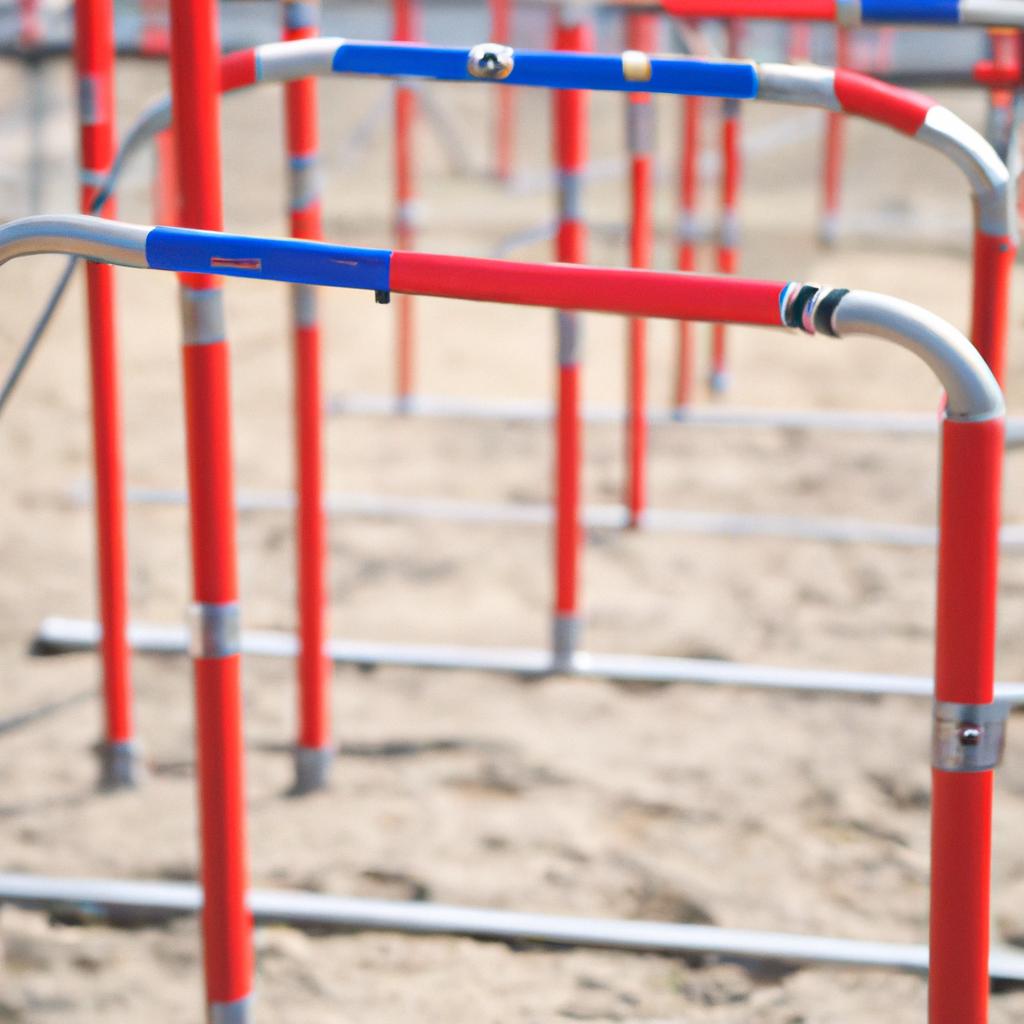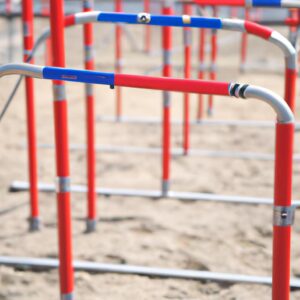**”Obstacle Course Preparation: Developing a Comprehensive Strategy for Mental and Physical Readiness in Competitive Environments”**
Obstacle Course Preparation: Developing a Comprehensive Strategy for Mental and Physical Readiness in Competitive Environments
As obstacle course races gain popularity, participants are increasingly looking for ways to enhance their performance. However, success in these demanding environments requires more than just physical strength. Therefore, developing a comprehensive strategy that focuses on both mental and physical readiness is essential for anyone looking to excel. In this blog post, we will explore effective preparation techniques, including nutrition tips, exercise advice, and the health benefits of a well-rounded approach.
Understanding the Demands of Obstacle Courses
Physical Challenges
Obstacle courses are designed to test various physical skills, including strength, agility, endurance, and balance. For instance, participants may face challenges such as climbing walls, crawling through mud, and navigating complex terrains. Consequently, a tailored training program is necessary to build the specific muscle groups that will be utilized during the race.
Mental Resilience
Moreover, mental toughness is equally crucial for overcoming the psychological barriers that arise during competition. Participants often face fatigue, fear, and self-doubt. Therefore, it is essential to incorporate mental resilience training into your preparation strategies. Techniques such as visualization, mindfulness, and positive self-talk can help strengthen your mental fortitude.
Nutrition Tips for Optimal Performance
Fueling the Body
In addition to physical training, nutrition plays a vital role in your overall performance. Eating a balanced diet filled with carbohydrates, proteins, and healthy fats will provide the necessary energy for your workouts and race day. Consequently, focus on whole foods such as fruits, vegetables, lean proteins, and whole grains.
Pre-Race Meals
Furthermore, timing your meals is crucial. Consider consuming a high-carbohydrate meal 3-4 hours before the race to allow for optimal digestion. On the other hand, avoid heavy or greasy foods that may cause discomfort during the event. Instead, opt for easily digestible snacks like bananas or energy bars right before the race.
Hydration Strategies
Moreover, hydration cannot be overlooked. Inadequate fluid intake can lead to decreased performance and increased risk of injury. Therefore, make it a habit to drink water throughout the day, especially in the days leading up to the event. During the race, consider using electrolyte-replenishing drinks to maintain your hydration levels.
Exercise Advice: Building Strength and Endurance
Strength Training
To prepare physically, a well-rounded exercise routine is essential. Focus on strength training that targets major muscle groups, particularly those used in obstacle courses. Exercises like squats, deadlifts, and pull-ups will help you build the necessary strength to tackle various obstacles effectively.
Cardiovascular Conditioning
In addition to strength training, cardiovascular conditioning is vital. High-intensity interval training (HIIT) can be particularly effective, as it simulates the bursts of energy needed during an obstacle course. Therefore, incorporating exercises like sprint intervals, hill workouts, and circuit training into your routine will improve both stamina and speed.
Flexibility and Mobility
Furthermore, don’t neglect flexibility and mobility training. Stretching and mobility work can prevent injuries and improve performance by enhancing your range of motion. Consider integrating yoga or dynamic stretching into your weekly routine to keep your body agile and ready for any challenge.
Health Benefits of Comprehensive Preparation
Overall Fitness Improvement
Consequently, a comprehensive approach to obstacle course preparation leads to significant overall fitness improvements. Not only will you build strength and endurance, but you will also enhance your mental resilience, making you better equipped to face challenges both on and off the course.
Stress Reduction
Moreover, regular exercise and proper nutrition contribute to stress reduction. In competitive environments, managing stress is crucial for maintaining focus and performance. Therefore, engaging in physical activities can serve as an effective outlet for stress, allowing you to approach races with a clear mind.
Enhanced Recovery
On the other hand, a well-rounded preparation strategy also aids in recovery. Proper nutrition and hydration, combined with strength training and cardiovascular workouts, enhance muscle recovery and reduce fatigue. Consequently, you’ll be better prepared for subsequent training sessions and races.
Conclusion: Embrace the Challenge
In conclusion, preparing for an obstacle course requires a multifaceted approach that balances physical and mental readiness. By focusing on nutrition, exercise, and mental resilience, you can equip yourself to tackle the challenges that lie ahead. Therefore, take the time to develop a comprehensive strategy that addresses all aspects of your preparation.
As you embark on this journey, remember that every obstacle is an opportunity for growth. Embrace the challenge, and with the right strategies in place, you will undoubtedly see improvements in your performance and overall well-being. So gear up, stay dedicated, and conquer that course!
FAQ
What are the key components of a comprehensive strategy for obstacle course preparation?
A comprehensive strategy for obstacle course preparation includes a balanced focus on physical training, mental resilience, and nutrition. Participants should engage in strength training to build muscle, cardiovascular conditioning for stamina, and flexibility training to prevent injuries. Furthermore, mental resilience techniques like visualization and positive self-talk are essential for overcoming psychological barriers. Lastly, proper nutrition and hydration play a critical role in optimizing performance and recovery.
How important is nutrition in preparing for an obstacle course race?
Nutrition is vital for optimal performance in obstacle course races. A balanced diet rich in carbohydrates, proteins, and healthy fats provides the necessary energy for training and competition. Timing meals is also crucial; consuming a high-carbohydrate meal 3-4 hours before the race can aid digestion and enhance performance. Staying hydrated in the days leading up to the event and during the race is equally important to prevent decreased performance and injury risk.
What role does mental resilience play in obstacle course racing?
Mental resilience is crucial for overcoming the psychological challenges faced during obstacle course races, such as fatigue, fear, and self-doubt. Incorporating mental toughness training into your preparation can help build this resilience. Techniques like visualization, mindfulness, and positive self-talk can strengthen your mental fortitude, allowing you to maintain focus and composure under















Post Comment